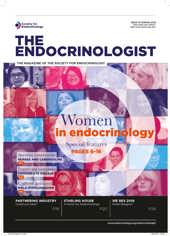Treatment of Addison’s disease/adrenal insufficiency requires timely oral steroid replacement therapy, and dose adjustment in response to day-to-day well-being and acute illness. Most patients are independently self-caring and will have an emergency strategy in place for treatment to prevent crisis, such as teaching basic dosing knowledge and injection instructions to a friend, work colleague or loved one. In acute illness and when receiving emergency care from healthcare professionals, any lack of understanding about the disease and about sick day rules may result in delays in treatment and increased anxieties, both for the patient and for relatives, as well as being potentially life-threatening.
IDENTIFYING THE PROBLEM
Emergency admission to hospital involves placing trust in the healthcare professionals to dispense and prescribe the right therapy at the right time. However, people who live with long term conditions, such as Addison’s, often find that they know more about managing their symptoms and condition than those who are tasked with the responsibility.
Through discussion with our patients with adrenal insufficiency or Addison’s disease, we have repeatedly heard of instances of admission to hospital only to find healthcare professionals who have very little awareness of adrenal insufficiency and the need for increased steroid requirement.
Medication rounds in many clinical environments are structured and hospital patients are given their medication by a third party at the discretion of the ward’s workload. This may not be necessarily at the time the medication is needed, demonstrating a potential lack of knowledge and specialist input on the part of the healthcare professional.
At the Royal Bournemouth and Christchurch Hospitals NHS Trust, we have a Learning Event Report Notification (LERN) reporting system, which is a governance tool for service improvement and risk assessment.
We identified two incidences where patients did not receive the correct treatment (i.e. steroid replacement at the right time) and/or did not have the doses increased in accordance with their presenting illness. It was established that there was a generalised lack of understanding by healthcare professionals of the importance of steroid replacement dosing and timing in Addison’s disease or adrenal insufficiency.
FINDING A SOLUTION
To address this issue for patients with adrenal insufficiency, we have now introduced a whole-time equivalent endocrine specialist nurse outreach support service, to give patients and allied health professionals specialist education, support and advice during hospitalisation.
Furthermore, not receiving the correct dose or formulation of steroid replacement when it is due is under review by the Society for Endocrinology with a view to classification as a ‘never event’.
We have, through the Trust’s information technology department, set up steroid coding flags to identify patients electronically when they are admitted, and an automated email is sent to the dedicated endocrine specialist nurses (with information about date of admission and location).
The specialist nurses then visit the patient, to address any therapy issues and patient concerns. When the patients are visited on the wards, we also take the opportunity to update them on sick day rules and injection training, which is beneficial.
THE SYSTEM IN PRACTICE
Since February 2018, we have had 20 e-mail alerts. As a result, we have been able to visit patients sooner after admission and address any concerns or lack of knowledge before any harm has occurred from missed, delayed or insufficient dosing. It has also promoted the re-engagement of patients and the promotion of future clinic attendance.
The ward visits also lend themselves to immediate ward-based education and updates for acute staff, and we are able to document admission and discharge therapy plans in notes and hand out information to both carers and patients. Managing therapy at appropriate doses and in a timely fashion allows a speedier recovery for patients, and we will be looking into the advantages this may bring in length of stay reduction as a future audit.
The endocrine outreach service has reduced patient anxiety and therapy errors at ward level, whilst offering education to staff previously unaware of the management of endocrine emergencies.
We plan to continue to make best use of this momentum by gathering more evidence regarding other endocrine disorders (e.g. diabetes insipidus) within the Trust, and also to consider an evidence-based quality of life tool/ questionnaire to provide more robust qualitative data in order to support an audit for clinical governance.
Michelle Nation and Becci Watling, Endocrine Nurse Specialists, Bournemouth Diabetes and Endocrine Centre, Royal Bournemouth Hospital






